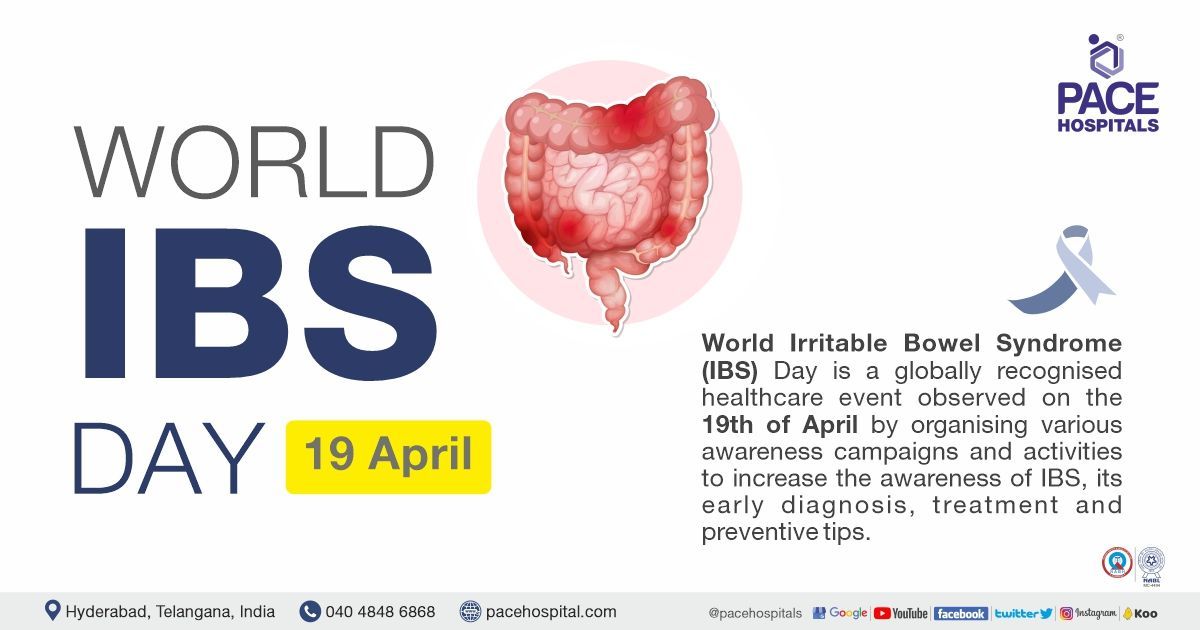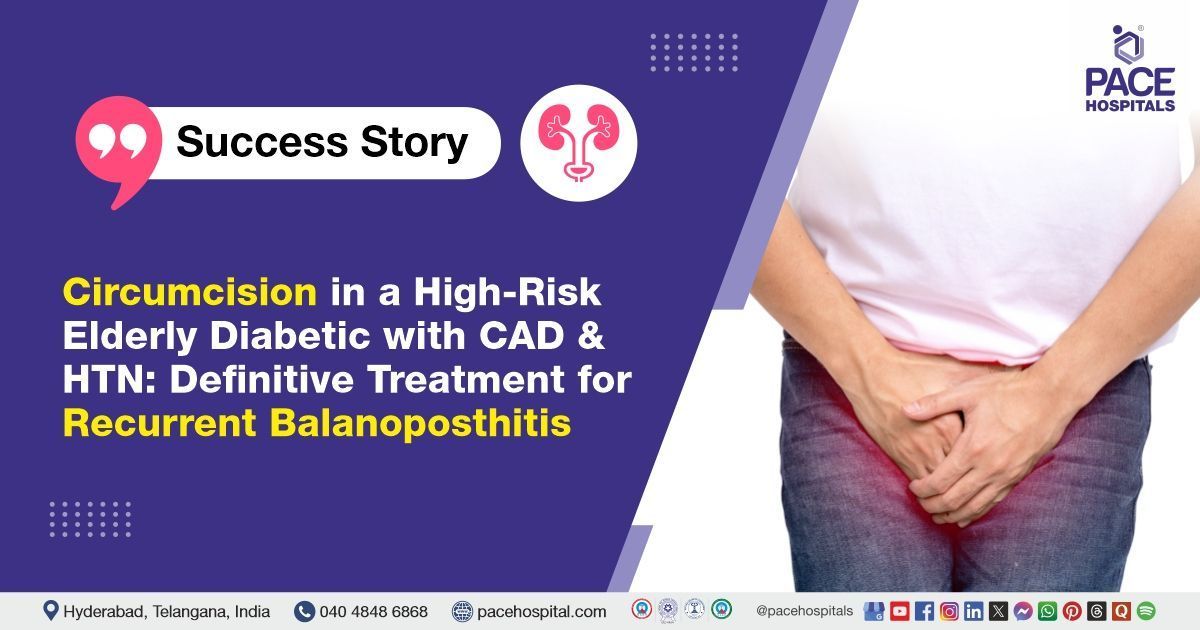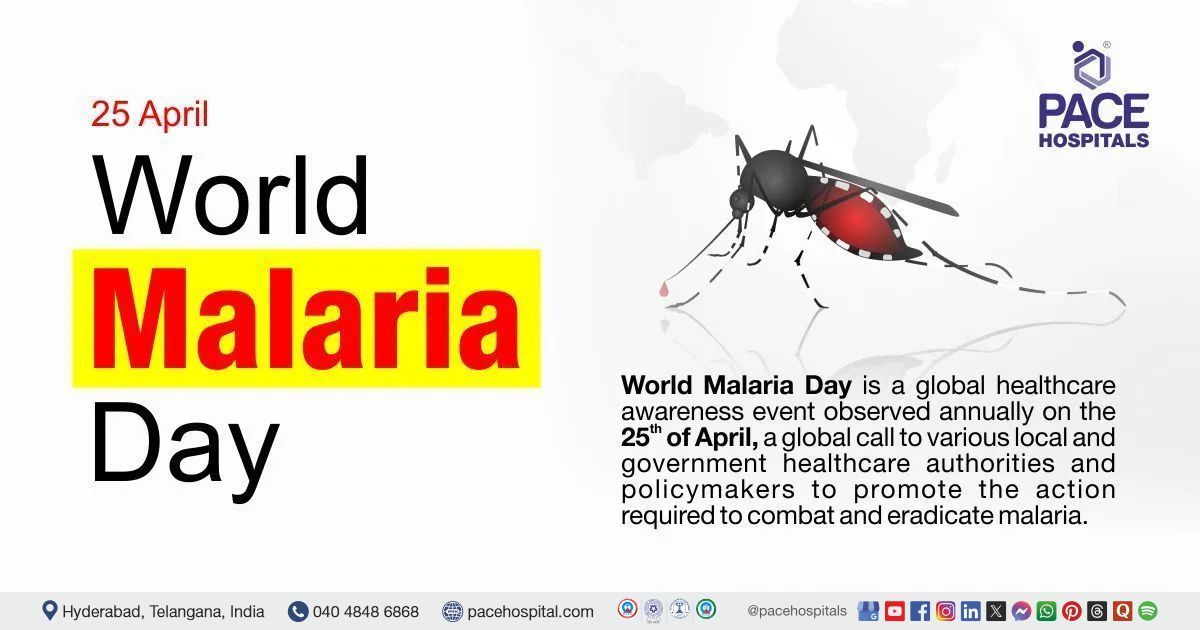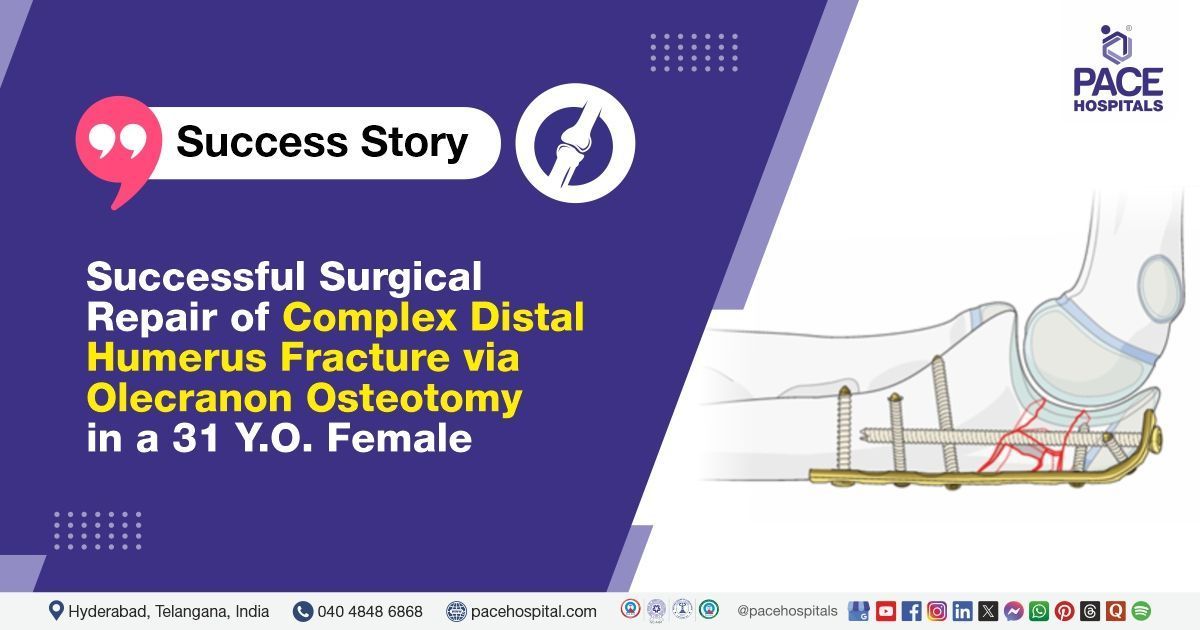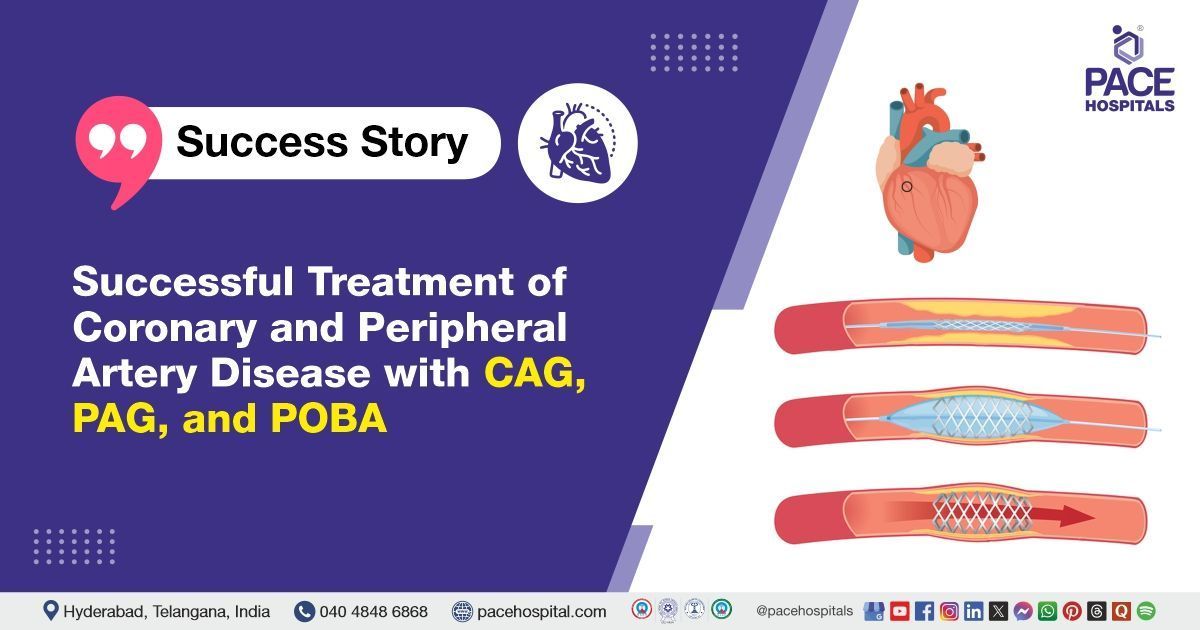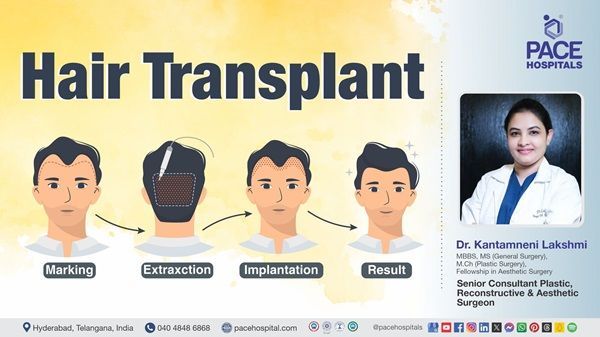Successful ABO Incompatible Kidney Transplant Overcoming Medical, Surgical, and Bureaucratic Challenges
Mr. Simon, a 45-year-old male resident of Madagascar, came up with the complaints of progressive kidney failure and underwent a complex ABO incompatible kidney transplant at PACE Hospitals, Hyderabad. The process also required obtaining critical government permissions from both the Madagascar government and the Telangana state due to his foreign residency status. Despite these complexities, the transplant was successful.
Chief complaints
Mr. Simon presented to PACE Hospitals, Hyderabad, with complaints of progressive kidney failure. He had been undergoing dialysis due to the decline in his renal function. His symptoms included fatigue, swelling, and difficulty in breathing, which were exacerbated by his underlying medical conditions. Mr. Eric also reported poor quality of life due to his blindness and the physical limitations imposed by his condition.
Medical history
Mr. Eric's medical history was significant for several chronic conditions such as
Type 2 diabetes mellitus (T2DM),
obesity weighing over 100 kg, a history of stroke, blindness, and
end-stage renal disease (ESRD), which complicated the treatment approach.
Diagnosis
Mr. Simon Eric’s primary diagnosis was end-stage renal disease (ESRD), a condition in which the kidneys can no longer perform their vital functions, such as filtering waste products and maintaining fluid balance, leading to the need for
dialysis or a
kidney transplant. His ESRD was caused by
diabetic nephropathy, a common and severe complication of long-standing diabetes mellitus. Additionally, the patient’s condition was further complicated by obesity, a history of stroke, and blindness, each of which posed specific challenges to the management of his disease condition.
Medical decision-making (MDM)
Considering the complexity of the patient’s medical condition and the availability of a kidney donor with an incompatible blood group, the transplant team led by Dr. Vishwambhar Nath, Senior Consultant Urologist & Renal Transplant Surgeon, along with Dr. Abhik Debnath, Dr. A Kishore Kumar and Dr. K Ravichandra, decided to proceed with an ABO incompatible kidney transplant. The decision was made after a thorough assessment of his clinical status, including:
- Blood group mismatch management: The team opted for a pre-transplant protocol involving desensitization therapy, which included plasmapheresis (to remove antibodies) and intravenous immunoglobulin (IVIG) to lower the risk of rejection of the ABO incompatible kidney.
- Obesity management: Although Mr. Eric was obese, the transplant team ensured that his weight and metabolic conditions were managed with pre-surgical optimization, including counseling on diet and exercise.
- Multidisciplinary approach: The decision to proceed was made in collaboration with cardiologists, endocrinologists, and nephrologists, considering the patient’s past stroke, diabetes, and obesity, all of which had the potential to complicate the surgery and post-operative recovery.
After careful consideration of the risks and benefits, the medical team decided that a kidney transplant was the best option for improving Mr. Eric’s quality of life and ensuring his long-term survival.
Treatment and surgical procedure
Before the transplant, Mr. Simon Eric underwent a desensitization protocol due to the ABO incompatibility with his wife, the donor. He received plasmapheresis and intravenous immunoglobulin to remove antibodies and reduce rejection risks. His diabetes was stabilized with insulin therapy, and obesity was managed with a structured diet plan, while his cardiovascular health was optimized to minimize surgical risks.
The donor, Mr. Eric’s wife, was thoroughly evaluated and found suitable despite the ABO mismatch. The kidney was harvested using laparoscopic techniques, overcoming challenges arising from the kidney’s complex vascular anatomy.
During the transplant, performed under general anesthesia by Dr. Vishwambhar Nath, the donor kidney was placed in Mr. Eric’s right iliac fossa. The blood supply to the kidney was restored within 40 minutes, ensuring the success of the transplant.
Post-transplant, Mr. Eric was started on immunosuppressive medications including calcineurin inhibitors, corticosteroids, and antiproliferative agents to prevent rejection and ensure long-term graft survival.
Post-procedure care
After the transplant, Mr. Eric was transferred to the Observation room for immediate post-operative monitoring, where his kidney function was closely observed through regular measurements of serum creatinine and urine output.
The medical team vigilantly monitored him for any signs of organ rejection, infection, or surgical complications. Over the following days, his immunosuppressive therapy was adjusted based on his kidney function and laboratory results.
Fortunately, Mr. Eric showed no signs of immediate rejection, and his kidney function steadily improved. With the restoration of kidney function, his diabetes became easier to manage. The endocrinology team closely monitored his condition, adjusting his insulin requirements to accommodate the changes in his metabolism post- transplant. The post-operative care ensured that his overall health improved, allowing for a smooth recovery process.
Additionally, he was given guidance on lifestyle modifications, including a healthy diet and weight management, to help prevent complications and ensure the long-term survival of the transplant.
Challenges in this case
- ABO incompatible transplantation: The ABO blood group mismatch between the patient (O positive) and his wife (B positive) required specialized desensitization therapy, including plasmapheresis and IVIG. This process was crucial to prevent the immune system from rejecting the donor kidney.
- Complex medical history: The patient’s long-standing diabetes and obesity complicated the management of his kidney failure and surgery. His history of stroke and blindness also added to the difficulty in managing his overall health and treatment plan.
- Obesity and surgical risks: Mr. Eric’s obesity increased the risk of complications such as infection and delayed recovery. Special care was required during the surgical procedure to ensure his safety and optimal recovery.
- Donor kidney harvest: The donor’s kidney had complex vascular anatomy, with early branching of the renal arteries. The surgical team performed laparoscopic kidney extraction to minimize invasiveness and ensure safety for the donor.
- Government permissions and legal approvals: As an International patient from Madagascar, Mr. Eric needed approvals from both the Madagascar government and the Telangana state health ministry. These bureaucratic processes added time and complexity to the transplant procedure.
- Immunosuppressive therapy management: Post-transplant, managing immunosuppressive therapy was challenging as it required balancing the risk of organ rejection with prevention of infections. Regular adjustments were required to ensure long-term success.
Discharge notes
The patient was discharged from the hospital 10 days post-transplant in a stable condition. His serum creatinine levels had significantly decreased, indicating that his kidney function was improving and stabilizing. He was prescribed a tailored immunosuppressive regimen to prevent organ rejection, along with medications to manage his diabetes effectively.
Successful ABO Incompatible Kidney Transplant at PACE Hospitals, Hyderabad
The ABO incompatible kidney transplant case highlights the expertise of PACE Hospitals’ transplant team in successfully managing complex cases. Despite significant medical challenges, including obesity, diabetes, a prior stroke, and ABO incompatibility, Mr. Eric’s successful transplant and recovery underscore the value of a multidisciplinary approach and precise surgical technique. With proper care, Mr. Eric is expected to lead a much-improved quality of life, free from dialysis, once he returns to Madagascar. This case not only marks a significant achievement in kidney transplantation but also showcases PACE Hospitals' commitment to delivering exceptional healthcare even in the most challenging circumstances.
Share on
Request an appointment
Fill in the appointment form or call us instantly to book a confirmed appointment with our super specialist at 04048486868








